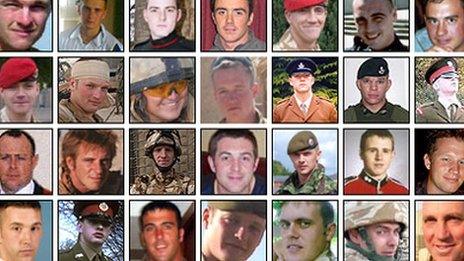Iraq and Afghanistan wars memorial unveiled
- Published
The Queen unveiled the sculpture by Paul Day after a "drumhead" service
A memorial dedicated to those who served in the Afghanistan and Iraq wars has been unveiled by the Queen in central London on Thursday.
The sculpture, by Paul Day, also marks the contribution made by civilians in the conflicts. It is formed of two stone monoliths and a bronze medallion.
Its unveiling in Victoria Embankment Gardens followed a service for 2,500 veterans on Horse Guards Parade.
More than 800 UK military personnel and civilians died in the three wars.
47 members of the armed forces died in Iraq in the 1990-91 conflict
179 were killed in the second Iraq war from 2003-09
456 died in Afghanistan between 2001-14
43 UK civilians were killed in the second Iraq war
101 civilians died in Afghanistan
Before the unveiling, the Queen and other members of the Royal Family attended a "drumhead" service - a religious service held in the field of battle which uses drums as an improvised altar - with veterans and other guests.
After the new monument was revealed, the Queen received a posy from the Lunn family - Serjeant Mark Lunn, 29, who was awarded the Military Cross for his actions during a fire-fight in Basra, his wife, Corporal Michelle Lunn, 26, and their two-year-old son Alfie.
But the toddler appeared a little reluctant to meet the monarch, squirming and wriggling as he met her.
Two-year-old Alfie was a little reluctant when he met the Queen
Prince Harry served in the Army for 10 years, including two tours of Afghanistan. Prince William served in the armed forces for eight years.
The guests included current service personnel, veterans, former prime ministers, civil servants and charity workers.
Among those at the service was Tony Blair, whose presence at the ceremony attracted some criticism on social media.
In 2016 the UK's Iraq War inquiry said Tony Blair overstated the threat posed by former Iraq leader Saddam Hussein, sent ill-prepared troops into battle and had "wholly inadequate" plans for the aftermath.
Former prime ministers David Cameron and Sir John Major were also there.
Lt Col Shehan Hettiaratchy: "We kept people alive who should have been dead"
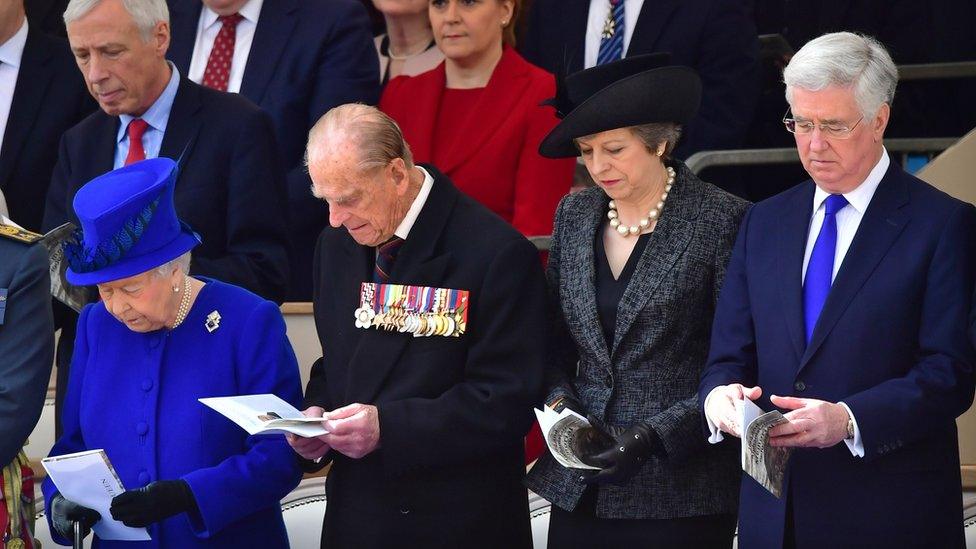
The Queen, Prince Philip, Prime Minister Theresa May and Defence Secretary Michael Fallon were among those in attendance
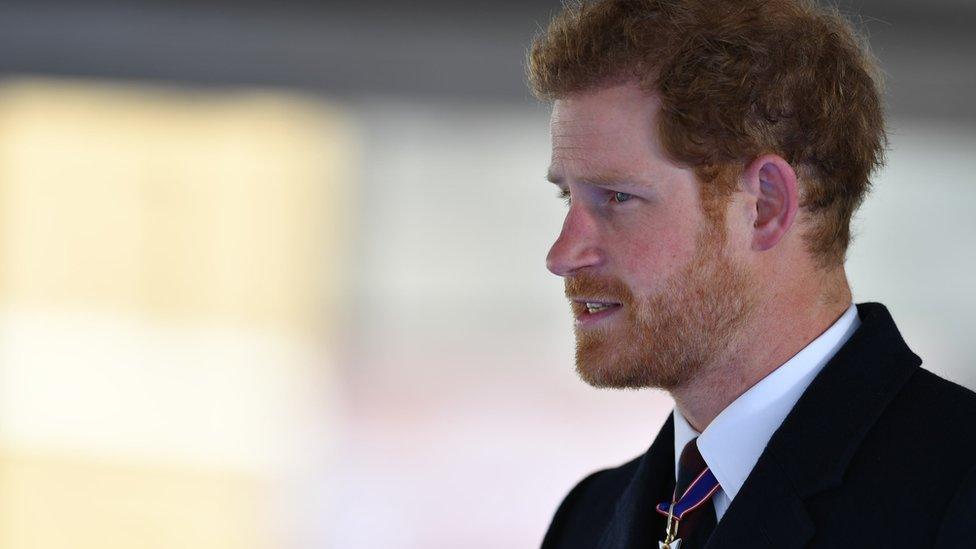
Prince Harry served in the Army for 10 years
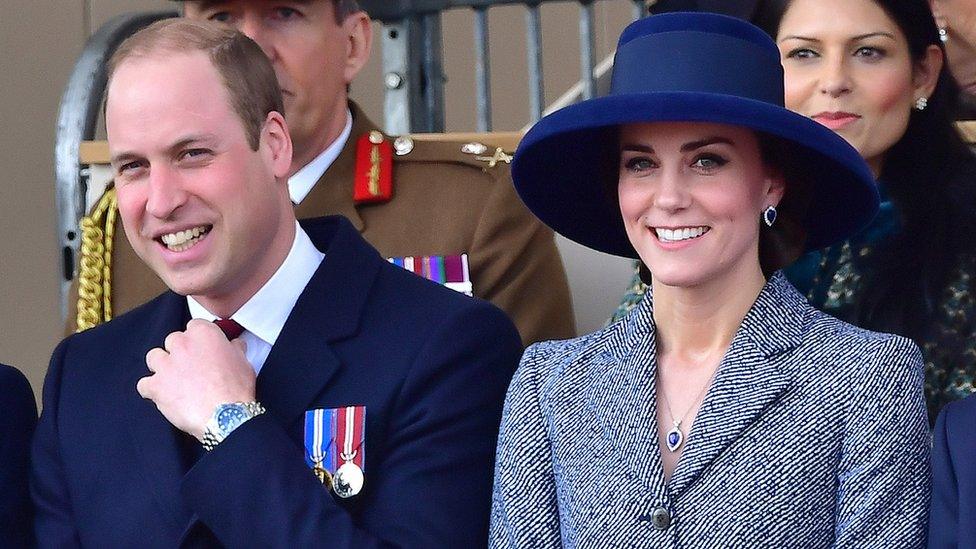
The Duke and Duchess of Cambridge also paid tribute to the military and civilians who lost their lives in conflicts
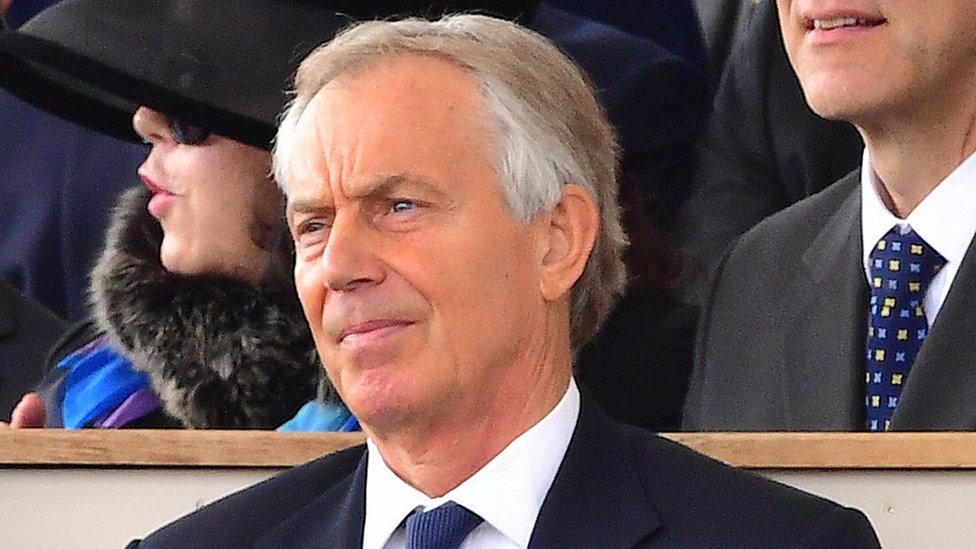
Former prime minister Tony Blair drew criticism on social media
The £1m monument was funded by a campaign by the Sun on Sunday newspaper.
The unveiling itself was relayed to screens on Horse Guards Parade.
Mark Collins, a former RAF wing commander who did two tours of Afghanistan, said the memorial would be a focal point where people could reflect on the good that went on overseas as well as the sadness.
He said he would remember a US marine from his team who was killed by a suicide bomber, leaving a physical absence in the team as well as frustration and anger for his loss.

At the scene: BBC correspondent Nick Higham
The sun shone on Horse Guards Parade for the drumhead service.
Bands from the Royal Marines, the Scots Guards and RAF played solemn music.
The Metropolitan Police Choir sang Nearer My God to Thee.
And Prince Harry, himself an Afghanistan veteran, read one of the lessons.
The prime minister looked on, seated close to her three predecessors, John Major, Tony Blair and David Cameron, in office between them throughout the 25 years of conflict.
Afterwards the Queen and Duke of Edinburgh were taken across Whitehall to unveil the memorial itself in Victoria Gardens, between the Ministry of Defence and the Thames.
It towered above the diminutive figure of the Queen, a huge brass disc between two stone pillars by the sculptor Paul Day.

Sculptor Paul Day also created the Battle of Britain monument, which stands nearby on the Embankment, as well as the Meeting Place, the sculpture of an embracing couple in St Pancras station.
This design consists of two large stone monoliths which appear to support a bronze medallion.
The Portland stone, quarried from under Portland's cricket pitch, weighs 33 tonnes.
The stone is finely carved on three sides but left jagged and rough hewn on the fourth side to suggest the rocky terrains of Iraq and Afghanistan.
Mr Day said he also wanted to suggest how the outcomes of both campaigns were not fully resolved, and the "division within the British people" over them.
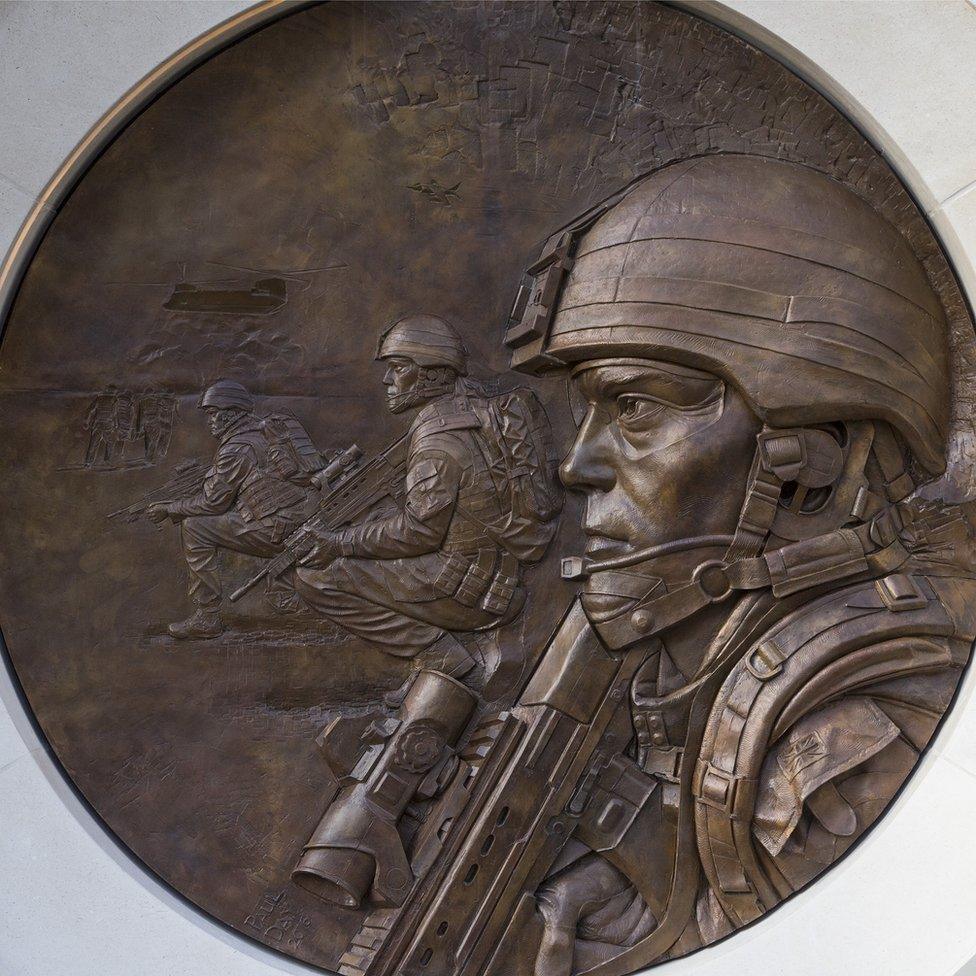
Military side of the memorial and, below, the civilian side
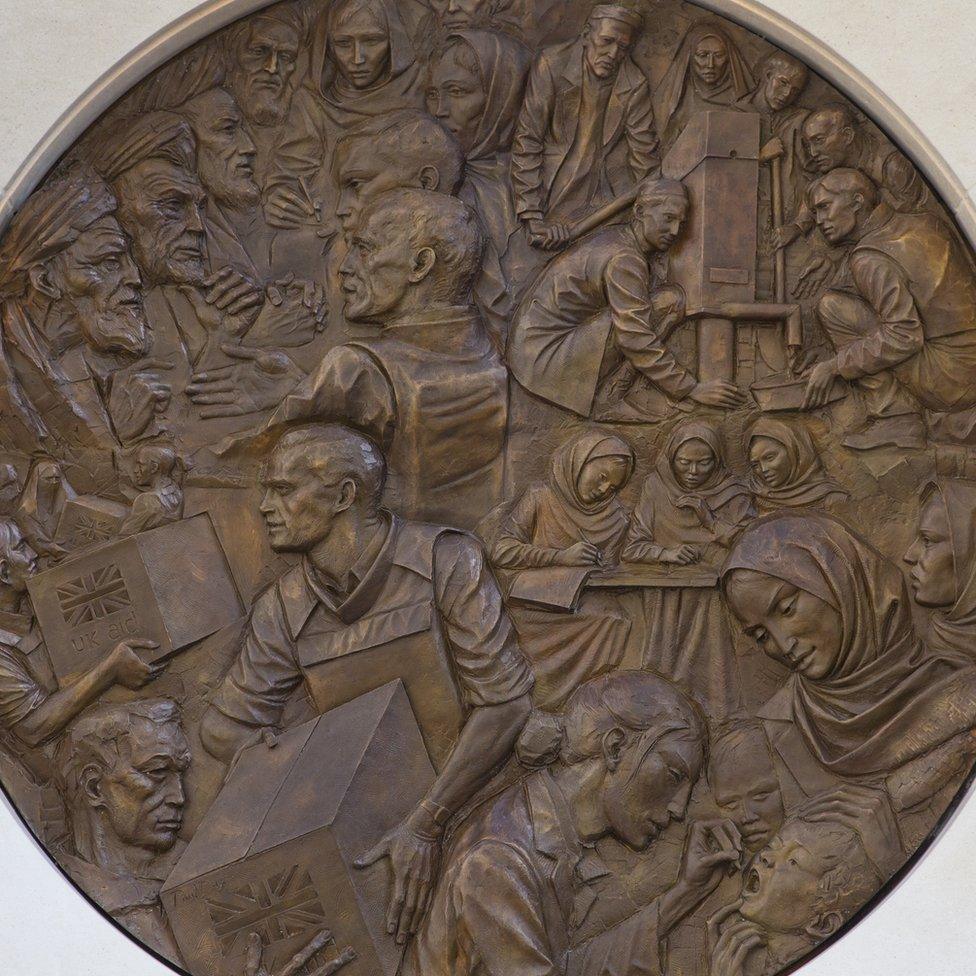
- Published8 March 2017
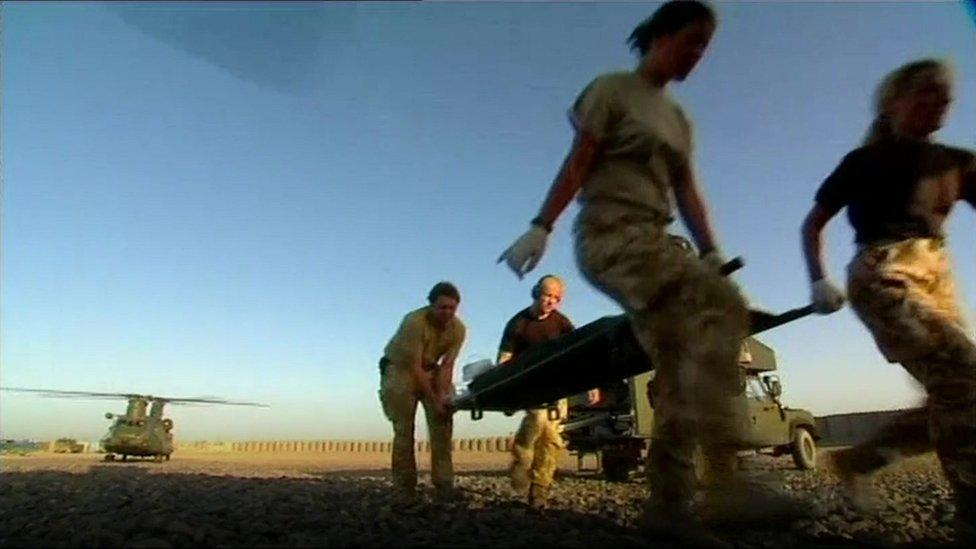
- Published7 July 2016
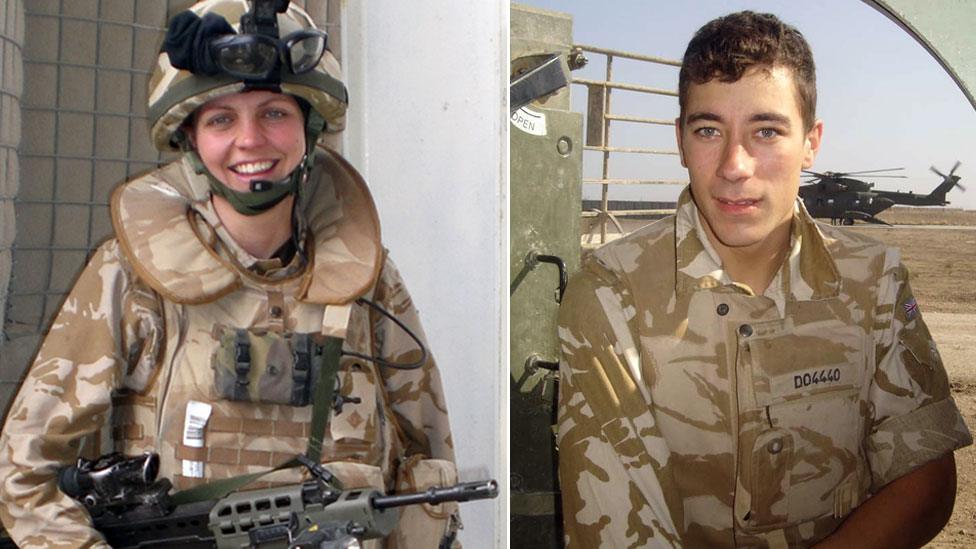
- Published3 November 2015
